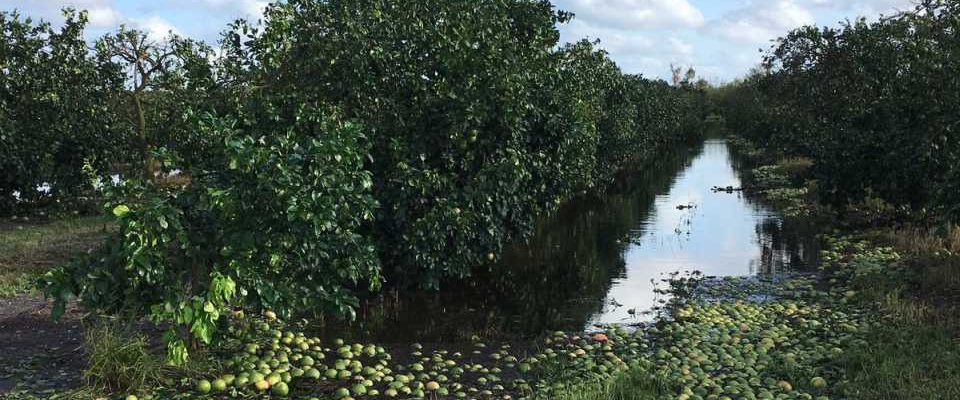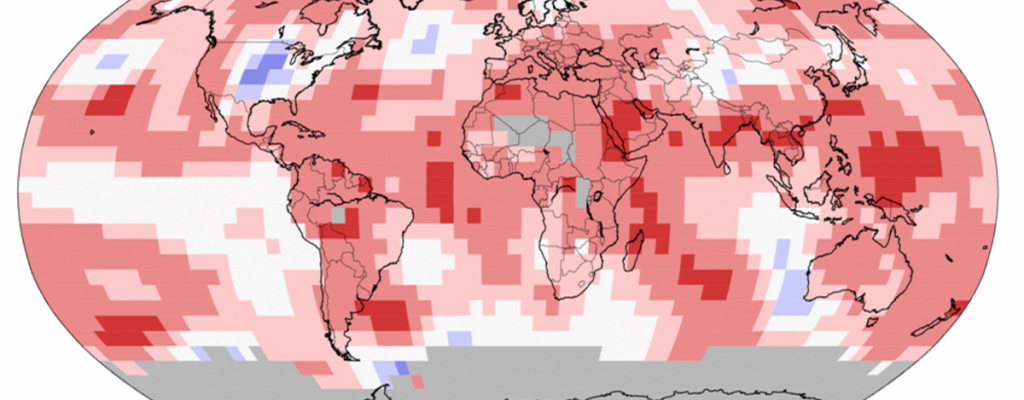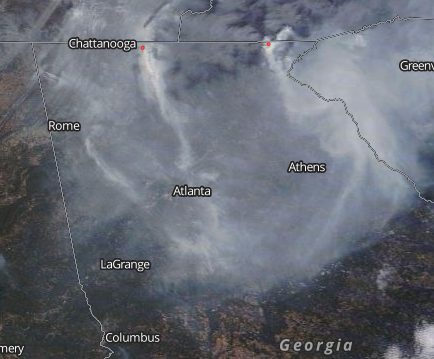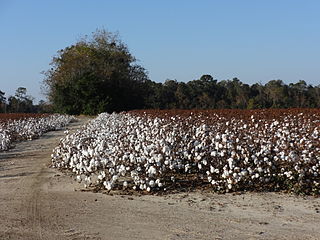September 2017
-

Florida citrus growers are continuing to assess damage from Hurricane Irma, according to a story in The Packer this week. While initial damage shows a lot of fruit blown down and trees tipped over, additional losses may become clear later as trees drop more fruit and losses from trees with roots under flood water become…
-

NOAA’s latest global climate summary shows that for the earth as a whole, August 2017 was the third warmest on record, following 2016 (highest) and 2015 (second highest). In fact, the eastern US was one of the few places in the world with temperatures below average. The summer months of June through August 2017 were…
Posted in: Climate summaries -

The Washington Post had an interesting column earlier this week on the air quality issues associated with the extensive forest fires that are occurring out west this year. I remember last year how fires associated with the 2016 drought in the Southeast brought smoky conditions to my area and walking outside meant walking into smoky…
-

In a post last week I noted that we are now in a La Niña watch, which means that conditions in the eastern Pacific Ocean are reflecting a developing La Niña as characterized by colder than normal ocean temperatures off the coasts of Peru and Ecuador stretching almost halfway west across the Pacific Ocean. This…
-

The weather in the last two growing seasons have not been kind to South Carolina, with tropical flooding rains washing out the plants in both falls. So far this year the storms have moved far enough away to minimize damage to their cotton and they are on track to produce their best crop ever. As…
-

While farmers growing corn, citrus, peanuts, pecans, vegetables and many other crops were significantly impacted by Hurricane Irma, livestock producers were also seriously impacted by the storm. Here are a few stories about their experiences. Dairy Herd Management: Florida Dairies Dealing with Aftermath of Irma, Some Dump Milk describes problems with lack of power and…
-

Many older weather records exist, but because they are stored in ship logs, on paper, or in museum log books, we can’t use them to do modern scientific studies with. If we had access to the data, it would give us a clearer look at long-term weather patterns that we can’t do now. Because of…